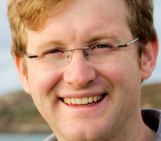We are currently changing our planet like never before. But do these changes deserve a new name?
The Anthropocene – a geological period marking the length of time for which humans have had a significant impact on the planet – was first proposed in the 1980s. But the word has gained significant attention in recent years thanks to the popularising work of Nobel prize-winning chemist Paul Crutzen.
Humans are now responsible for moving more sediment around the face of the planet than all natural processes put together. Species extinction is thought to be operating at between 100 and 1000 times the ordinary background rate. Trace elements from weapons tests and coal burning can be found in ice cores. And climate change is altering the planet’s ecosystems in numerous ways. Yet despite all this, the Anthropocene isn’t officially recognised by geologists.
The International Union of Geological Sciences (IUGS) is the body responsible for changes to the geological timescale. Back in 2008 they acknowledged that the term had merit and in 2009 they set up a working group to investigate the issue.

An open pit mine in southern Arizona. (Credit: NASA)
Jan Zalasiewicz, a Senior Lecturer in Palaeobiology at the University of Leicester in the UK, is a member of the group. “We make the decision to mark out the great dynasties,” says Zalasiewicz, “and we are now in a new dynasty.” Zalasiewicz was speaking at a press conference at the EGU General Assembly 2014.
But the process remains a slow one: the working group isn’t presenting its initial findings until 2016. The issue explains Tony Brown, Professor of Geography at the University of Southampton in the UK, is that we need to be able to find the Anthropocene in the rock record; we need to be able to show that Anthropocene deposits extend for large horizontal distances and we need to be sure that they’ll remain there in the future.
The other major concern is when the Anthropocene actually started. “There’s probably a consensus that this is worth formalising,” says Zalasiewicz, “there’s less of a consensus as to when that should be.” Some, like Crutzen, pin the boundary at the start of the Industrial Revolution, but others think there is evidence for a much earlier start to the Anthropocene around 8000 years ago, when human agriculture first became widespread.
But do the details of the definition matter? John Burrows, Professor of Physics and Chemistry of the Atmosphere at the University of Bremen in Germany thinks we might be getting bogged down in the semantics. “We’re still behaving like hunter-gatherers with unlimited resources,” he says, “the question is: is the boat full?”
Perhaps, then, the Anthropocene is most useful as a tool for engagement, a way of reminding people how much of an effect we have on the planet – and that we need to think carefully about how we should be living in the age of humans.
By Tim Middleton, University of Oxford




